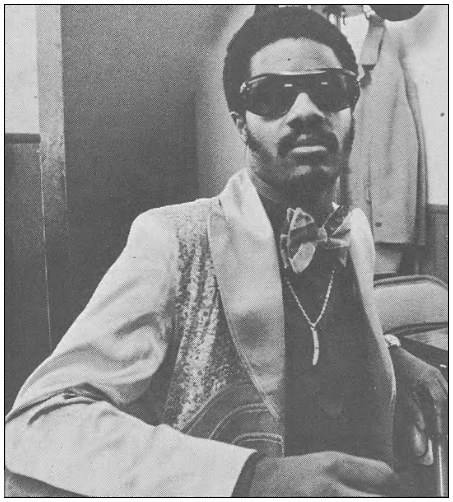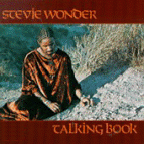|
"Superstition" Stevie Wonder Tamla 54226 January 1973 Billboard: #1
With the success of "Fingertips," Stevie became an integral part of the Motown family. And family it was for the boy who was just becoming a teenager. "Everyone over 11 was a parent," he recalled. "(Producer) Clarence Paul loved me like his own son. Esther Edwards, Berry Gordy's sister... all the musicians and artists watched over me. Wanda of the Marvelettes would always tell me when she though I was eating too much candy. I wish kids today could have the same kind of caring expressed and shown to them."
By the end of the decade, Stevie had racked up nine top 10 hits for Motown, including "I Was Made to Love Her" (number two in July, 1967), "For Once in My Life" (number two in December, 1968) and "My Cherie Amour" (number four in July, 1969). Not yet 21, Stevie was receiving a weekly allowance, with his earnings put in trust until he came of age. When he reached adulthood and went to collect, he was shocked to learn that he was only entitled to one million dollars, after earning over 30 million dollars for the company. That's when Stevie informed Ewart Abner, then president of Motown, that he wanted to control his own fate. In an unprecedented move for Motown, Stevie and his lawyer, Johanan Vigoda, successfully negotiated for Stevie to have his own production and publishing companies, staffed with his own people. Stevie matured as a musician as well as a businessman. No longer content to produce formula hits, he explored new sounds. In 1971, Richie Havens ("Here Comes the Sun") introduced Stevie to Robert Margouleff and Malcolm Cecil, creators of the giant Tonto synthesizer. That led Stevie to New York City's Electric Lady studios, armed with synthesizer know-how, equipment and $250,000 of his own money. He emerged in March, 1972, with Music of My Mind. Although the album produced no top 20 singles, it marked an evolution in his music and established him as an artist to be taken more seriously than the "Little" Stevie Wonder of the early '60s. Eight months later, Stevie issued the more complex, more mature Talking Book album. Thanks to Motown's insistence, Stevie had a second number one single. Stevie's first choice for a 45 was "Big Brother," but Motown executives were adamant that "Superstition" would be the stronger release. A year earlier, Stevie had worked with guitar virtuoso Jeff Beck. The song "Superstition" had been written for Beck, and Stevie believed it was perfect for his sound. "My understanding was that Jeff would be releasing 'Superstition' long before I was going to finish my album; I was late giving them Talking Book," Stevie told Ben Fong-Torres in Rolling Stone. "Jeff recorded 'Superstition' in July, so I thought it would be out." Since Stevie hadn't finished "Big Brother" in time, Motown released "Superstition" just ahead of the LP. The single entered the Billboard Hot 100 at number 82 on November 18, 1972, and 10 weeks later moved to number one. - Fred Bronson, The Billboard Book of Number One Hits, Billboard, 1988.
No comments so far, be the first to comment. |


